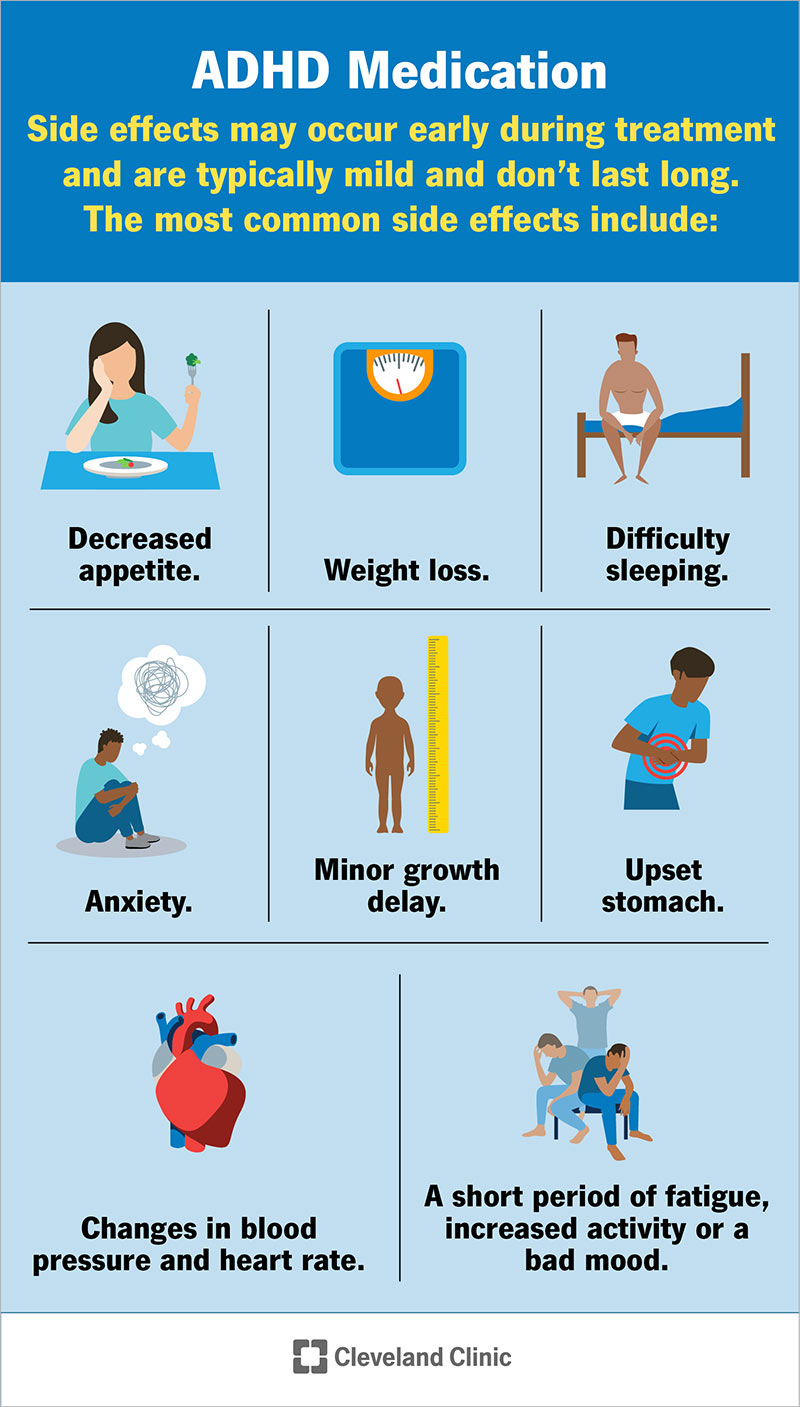Mental Health Services Focused for Effective Care Needs
Mental Health Services Focused for Effective Care Needs
Blog Article
Checking Out Efficient ADHD Therapy Choices for All Ages
The complexities of Focus Shortage Hyperactivity Condition (ADHD) existing special difficulties across various age teams, necessitating a detailed expedition of efficient therapy options. A mix of behavior treatments, pharmacological treatments, and lifestyle alterations has actually shown assurance in resolving the varied requirements of individuals with ADHD. However, the effectiveness of these approaches can differ substantially based on personal conditions, raising essential concerns concerning customized approaches. As we examine the range of treatment methods offered, it becomes essential to think about not just their prompt influences yet also their long-lasting implications for individuals and family members.
Comprehending ADHD and Its Effect
Attention-Deficit/Hyperactivity Problem (ADHD) is a neurodevelopmental condition defined by relentless patterns of negligence, hyperactivity, and impulsivity that can substantially impact various elements of a person's life. It typically manifests in childhood, although signs and symptoms can linger into their adult years. The core signs of ADHD can interrupt academic efficiency, hinder social communications, and make complex work ventures.
Individuals with ADHD frequently have problem with keeping focus on jobs, arranging tasks, and following up on instructions, which can bring about scholastic underachievement (Depression Treatment). In social contexts, impulsivity may result in troubles in forming and maintaining partnerships, as individuals might interrupt conversations or make hasty choices without considering repercussions
The variability in sign presentation suggests that ADHD can influence individuals in different ways, necessitating a tailored technique to monitoring. Comprehensive awareness of ADHD's nature and implications lays the groundwork for exploring appropriate therapy alternatives customized to each person's demands.
Behavioral Therapies for ADHD
Numerous behavior modifications have been established to properly attend to the difficulties connected with ADHD, concentrating on modifying certain actions and cultivating essential skills. Among the most recognized approaches are cognitive-behavioral therapy (CBT), parent training, and social abilities training.
CBT aids individuals determine and alter negative thought patterns and actions, promoting an extra favorable outlook and enhanced self-regulation. This therapy often consists of practical approaches for taking care of impulsivity and enhancing company. Parent training programs encourage caretakers by equipping them with techniques to reinforce positive actions and set constant limits, which can be specifically beneficial for children with ADHD.
Social abilities training is an additional essential part, teaching individuals with ADHD just how to communicate effectively with peers - Depression Treatment. This method typically involves role-playing and responses to enhance interaction, collaboration, and conflict resolution skills
Integrating these behavior modifications into a comprehensive treatment strategy can substantially enhance functioning and lifestyle for people with ADHD. Inevitably, the efficiency of these treatments relies on tailored strategies that take into consideration the one-of-a-kind demands of everyone, thus promoting durability and adaptability in day-to-day live.
Medicine Options Available
For several people with ADHD, drug can play a substantial function in managing signs and improving total performance. Both primary groups of medicines suggested for ADHD are energizers and non-stimulants.
Stimulants, such as methylphenidate and amphetamine-based medicines, are one of the most commonly utilized therapies. These medicines work by enhancing the levels of natural chemicals, specifically dopamine and norepinephrine, in the brain, which aids improve interest and reduce impulsivity and dr solomon psychiatrist attention deficit disorder. They frequently produce fast results, making them a recommended option for several clients.

It is important for doctor to carry out a detailed Full Article analysis to establish the most suitable medicine based upon private needs, case history, and potential negative effects. Routine follow-up and surveillance are likewise vital to guarantee the efficiency of the chosen therapy and to make any required changes.
Lifestyle Changes to Take Into Consideration
Managing ADHD efficiently extends past medicine, as way of living modifications can substantially boost overall wellness and symptom control. Including organized routines is crucial; regular schedules help individuals with ADHD manage their time successfully and decrease feelings of bewilder.
Routine physical activity is another vital part. Workout not just assists to boost concentration however likewise increases state of mind and reduces tension levels. Tasks such as yoga exercise or group sporting activities can be particularly advantageous, promoting both physical conditioning and social communication.
Nourishment likewise plays an essential duty. Depression Treatment. A balanced diet regimen abundant in omega-3 fats, whole grains, and lean proteins can add to enhanced emphasis and cognitive function. Restricting sugar and refined foods is advisable, as these can aggravate hyperactivity and impulsivity
Sleep health is important for handling ADHD signs. Developing a normal rest timetable and creating a restful setting can enhance rest high quality, resulting in better interest and emotional law.
Alternative and Alternative Methods
Alternate and holistic methods to ADHD therapy use a diverse series of options here that enhance standard techniques. These approaches commonly focus on way of life adjustments, nutritional treatments, and restorative techniques that aim to enhance total wellness while addressing ADHD signs.

Mindfulness and behavior modifications are additionally getting grip as alternative interventions. Practices such as yoga exercise, reflection, and cognitive-behavioral therapy can cultivate self-regulation and boost attention. These approaches support emotional durability, which is particularly helpful for people with ADHD.
Natural supplements, such as ginkgo biloba and ginseng, are occasionally checked out; however, it is crucial to speak with health care experts before incorporating these into therapy strategies. While choice and holistic techniques can provide important support, they should ideally be utilized together with evidence-based therapies to attain optimum results for managing ADHD across any ages.
Conclusion
In summary, reliable ADHD treatment demands a comprehensive technique that includes behavioral therapies, medication, lifestyle modifications, and holistic techniques. This complex strategy emphasizes the value of customized care in resolving the diverse requirements of individuals with ADHD throughout all age teams.
Report this page